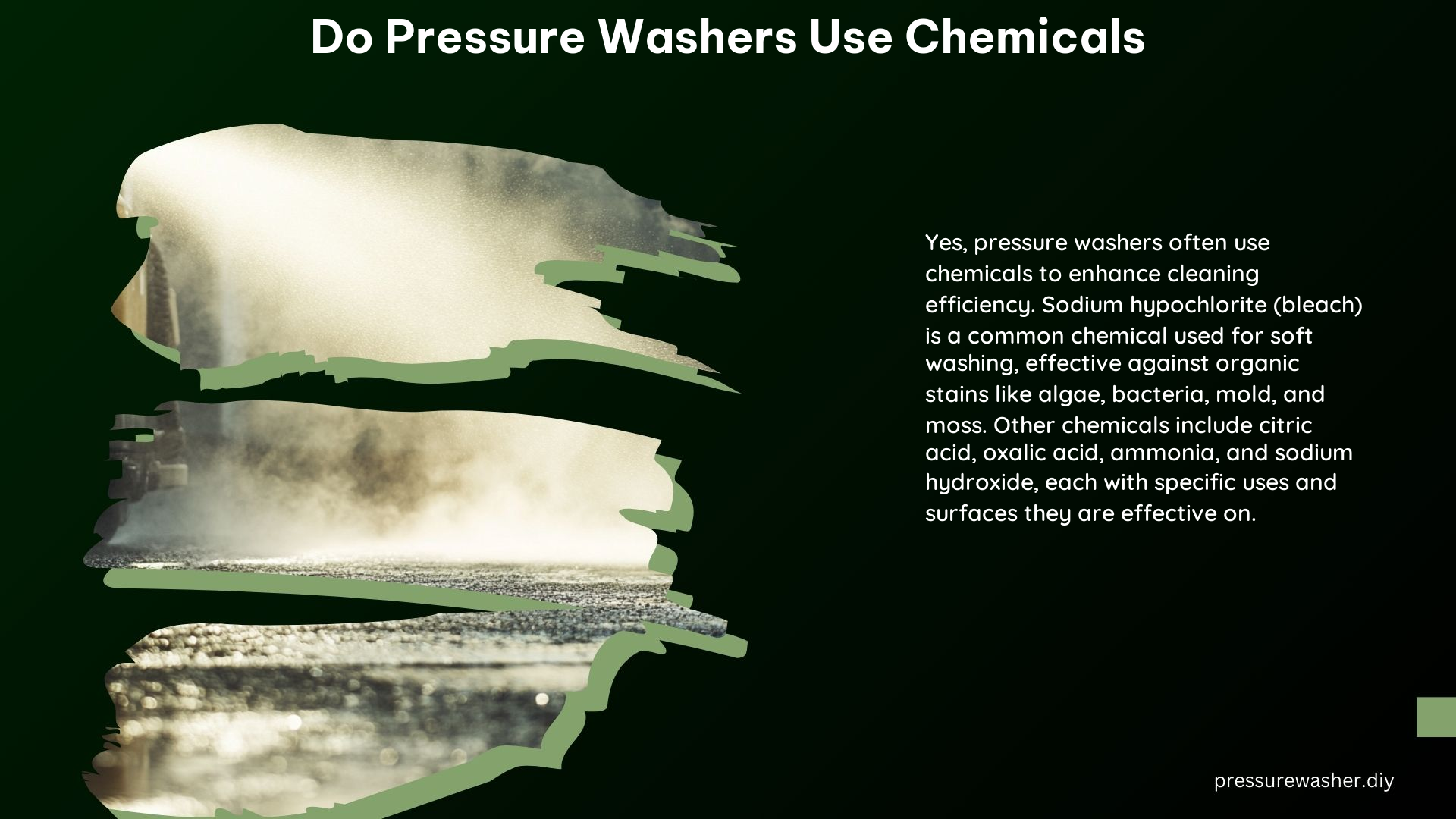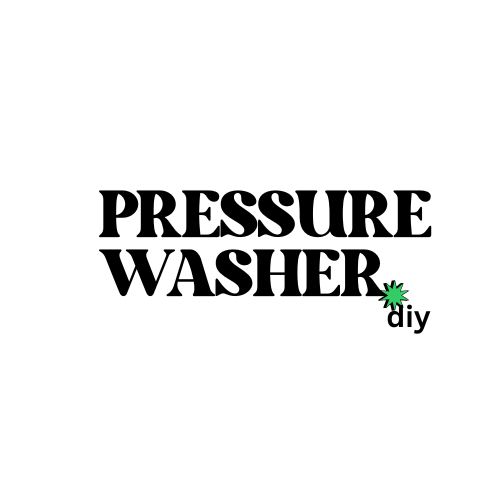Pressure washers are a powerful cleaning tool that can effectively remove dirt, grime, and stains from various surfaces. While pressure washers can be used with just water, they often utilize chemicals to enhance their cleaning capabilities. These chemicals can vary depending on the type of surface being cleaned and the specific stains or dirt being targeted.
Common Chemicals Used in Pressure Washing
1. Sodium Hypochlorite
Sodium hypochlorite is a powerful chemical commonly used in pressure washing, particularly for soft washing. It is highly effective against organic stains like algae, mold, and mildew. Typically, sodium hypochlorite is applied using a low-pressure nozzle and then rinsed off with water. The concentration of sodium hypochlorite in pressure washing solutions can range from 5% to 12.5%, depending on the specific application and manufacturer’s recommendations.
2. Citric Acid
Citric acid is a naturally occurring acid found in citrus fruits, such as lemons and limes. It is used in pressure washing to sanitize, disinfect, and clean surfaces. Citric acid is effective against mildew, water stains, and rust, making it suitable for cleaning wood decks, concrete driveways, and wood fences. The typical concentration of citric acid in pressure washing solutions ranges from 5% to 10%.
3. Oxalic Acid
Oxalic acid is a chemical compound found in various vegetables, fruits, nuts, and seeds. It is used in pressure washing to remove stains and rust from wood and stone surfaces. Oxalic acid acts as a bleaching agent and is effective at cleaning these types of surfaces. The concentration of oxalic acid in pressure washing solutions is typically between 2% to 5%.
4. Ammonia
Ammonia is a naturally produced gas that is used as an alkaline cleaner in pressure washing. It is safe to use on delicate surfaces like stainless steel and glass. However, ammonia has a strong odor and should be used with caution, as it can be irritating to the eyes and respiratory system. The concentration of ammonia in pressure washing solutions is usually around 5% to 10%.
5. Bleach
Bleach is a mixture of sodium hydroxide and sodium hypochlorite. It is highly effective at sanitizing and disinfecting surfaces, but it should be used with caution, as it can damage certain materials like copper, brass, stainless steel, porous woods, and delicate stones. The concentration of bleach in pressure washing solutions is typically between 2% to 5%.
6. Sodium Hydroxide
Sodium hydroxide, also known as caustic soda, is a chemical used to make liquid soap and is a common ingredient in pressure washing chemicals. It is effective at cleaning surfaces but should be used with caution due to its alkaline properties. The concentration of sodium hydroxide in pressure washing solutions can range from 5% to 10%.
Technical Specifications and Safety Considerations

Application Methods
Chemicals can be applied using a chemical injector and low-pressure tip on the spray gun or by adding an injector at the spray gun itself. This ensures the correct ratio of chemical to water and prevents over-concentration, which can damage surfaces or be harmful to the user.
Safety Precautions
Chemicals used in pressure washing should be handled by trained professionals to avoid accidents and ensure proper usage. It is essential to follow the manufacturer’s instructions and take necessary safety measures, such as wearing protective gear (e.g., goggles, gloves, and respirators) and covering nearby plants and furniture to prevent damage.
Environmental Impact
While pressure washing can be an eco-friendly cleaning method, the use of chemicals can have environmental implications. It is recommended to use eco-friendly products and follow proper disposal methods to minimize the impact on the environment.
Commercial Pressure Washer Chemicals
Commercial pressure washers often use a variety of specialized chemicals for specific cleaning tasks. Some examples include:
- F9 Bark Acid: A popular acid product used for various types of stains and surfaces, with a typical concentration of 10% to 15%.
- Eliminator: A chemical by Pressure Tech used for specific cleaning tasks, with a concentration ranging from 5% to 10%.
DIY vs. Professional Pressure Washing
While it is possible to use pressure washers with chemicals for DIY cleaning, it is generally recommended to hire a professional for several reasons:
- Equipment and Chemical Knowledge: Professionals have access to commercial-grade equipment and the knowledge to use the right chemicals for the job, ensuring effective and safe cleaning.
- Cost and Environmental Concerns: Professionals can buy chemicals in bulk, reducing costs, and are more likely to use eco-friendly products, minimizing the environmental impact.
By understanding the various chemicals used in pressure washing and the technical specifications and safety considerations, you can make an informed decision on whether to tackle the job yourself or hire a professional.
Reference:
– https://www.reddit.com/r/pressurewashing/comments/13lzxua/do_i_need_chemicals/
– https://www.getmemphisclean.com/pressure-washing-tips/chemicals-used-pressure-washing
– https://washh.com/residential/pressure-washing-chemicals/
– https://www.cleanprosupply.com/educational-blog/what-kind-of-chemicals-are-used-in-pressure-washing/
– https://www.youtube.com/watch?v=NTVPZS45OaA
